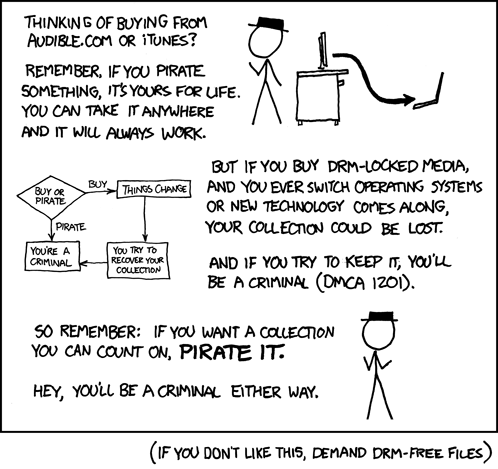From the always entertaining Randall Munroe:

I don't think I'd ever quite thought of it this way, but it seems to me that this just goes to show how the use of DRM has likely only acted to increase the frequency of piracy. I sincerely hope that makers of all sorts of digitally-distributed data products wise up to the kinds of behavior they're encouraging.
I'm seriously worried that the few DRM-locked games I have today (largely due to my move to Italy) will be lost at some unspecified point in the future. Makes me not want to buy another DRM-locked game ever again.

I don't think I'd ever quite thought of it this way, but it seems to me that this just goes to show how the use of DRM has likely only acted to increase the frequency of piracy. I sincerely hope that makers of all sorts of digitally-distributed data products wise up to the kinds of behavior they're encouraging.
I'm seriously worried that the few DRM-locked games I have today (largely due to my move to Italy) will be lost at some unspecified point in the future. Makes me not want to buy another DRM-locked game ever again.

